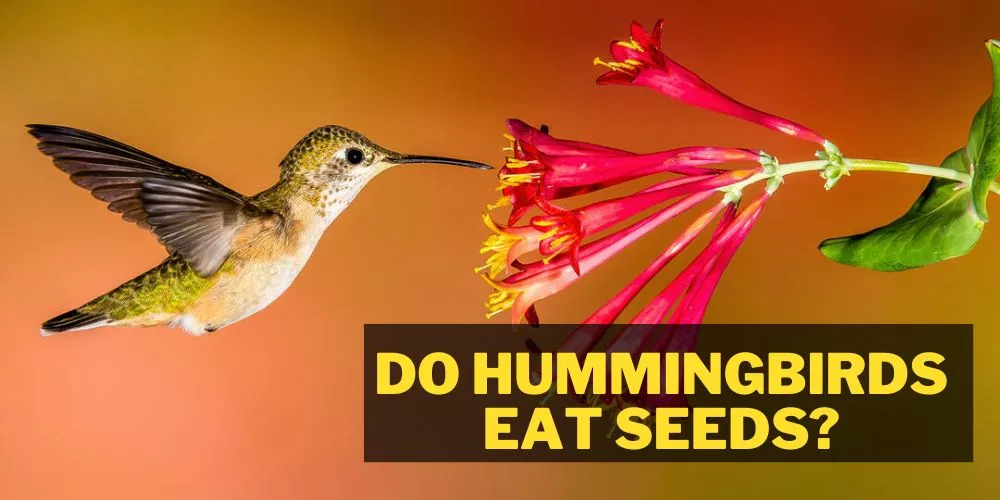Deer are shy animals, but when they are in search of food, they will not shy away from your gardens. Now when you decide to go for organic vegetables grown in your garden itself, it is not all about seeds and fertilizers.
As a gardener, you need to keep your plants away from wild animals and insects. Deer tend to come inside your yards, especially during the winter. But do deer eat elderberries?
Plants like Elderberries or rose hips are grown in the backyards, which are useful as they contain many vitamins and nutrients. But these plants are also not out of the reach of the wild deer! Yes, deer eat elderberries. To know more about the elderberries and their preference by the deer, keep reading!
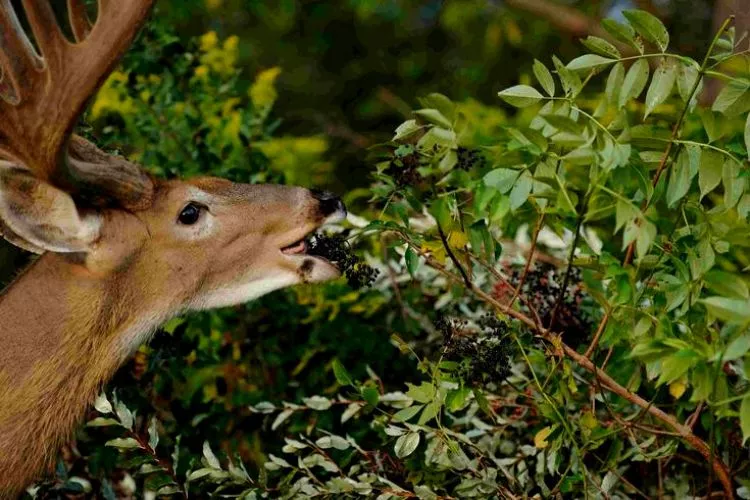
Do Deer Eat Elderberries?
Deer eat elderberries, when they wander for food from place to place and can easily nibble in some elderberry bushes, hence damaging the entire plant. But when it comes to preference, deer will usually choose grasses, fruits, and nuts instead of berries.
But not all the deer are aware of the difference between normal grasses and the bushes of elderberries. They can munch on both types of grass without knowing the difference between them. They are herbivorous animals and will eat anything plant-based.
But certain types of elderberries are not eaten by deer in any circumstance. But if you ever notice your plants have bite marks or they have stopped growing, it is time for you to start thinking about their protection.
What wild animals eat elderberries?
There are several wild animals, like deer, who can eat up your elderberry plants or bushes. Animals such as squirrels, raccoons, and other small herbivores also eat elderberries.
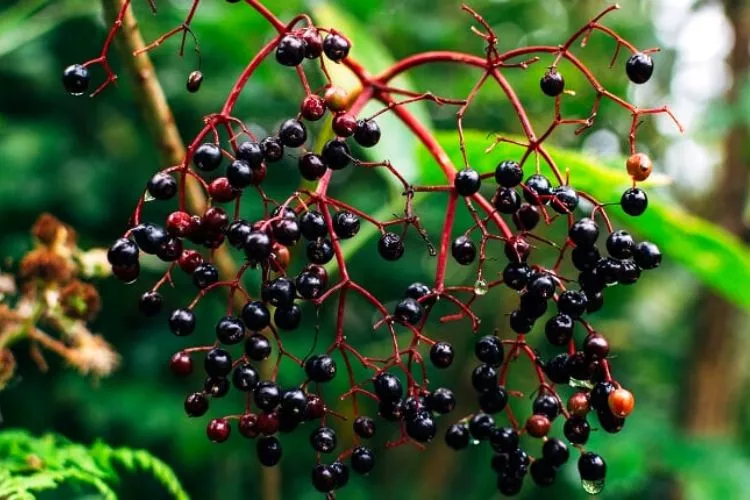
Fruits of the elderberry plants are sweet and are used for making candies and pies. This explains why wild bears love to have elderberry fruits while animals like deer and elk eat up the other parts of the plant.
In fact, the bushes of the elderberry plants can grow in the wilderness due to cross-pollination by the birds which can make their foliage much eaten by grass-eating animals.
Which birds are attracted to elderberries?
Birds like songbirds feed on elderberries during the summer months as they have glucose and give much-needed energy to these aerial animals. It is because of these birds who throw away the seeds of the berries at different places, which has certainly increased the population of the plant. Below is a list of birds that can come to the landscape to feed on these berries.
Finches
Finches are small colorful plants that are attracted to the flowers for their nectar. Flowers, specifically belonging to the daisy family, feed these birds all year round.
In addition to this, flowers that produce small seeds, such as sunflowers, attract these small birds. Elderberries are small in size and sweet as well. This explains why finches are fond of elderberries and nibble on them whenever they are within reach of these finches.
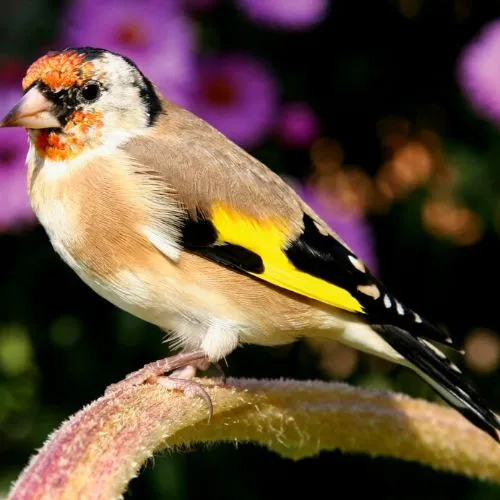
Other than the food sources, Elderberry plants provide thin wood needles for these birds so that they can build their nest.
Woodpeckers
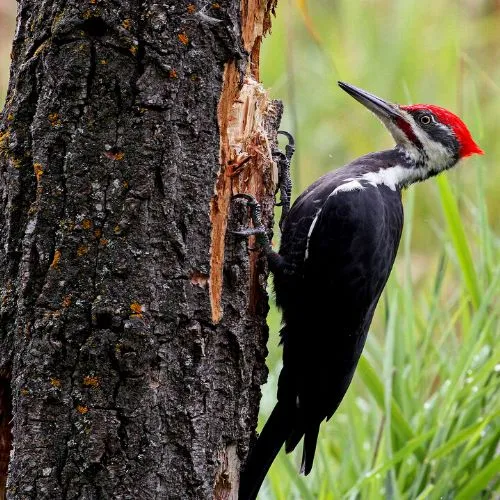
Woodpeckers are famous for making their nests on the tree barks by digging holes in them through their beaks. They have a very strong beak and can easily pluck out fruits and berries whenever they can spot them while flying.
They are very commonly found birds and mostly stick around big trees. Trees like oak, teak, silver fir, etc.
Have a huge accumulation of insects during the summer season that comes on these trees for nectar. Woodpeckers feed on these insects and also the small berries.
Elderberries also have a bunch of ants wandering around for food which makes it probable for the woodpeckers to pluck out the plants from your garden.
Crows
Crows are the most commonly found birds and need no introduction. They are omnivorous and feed on anything and everything they find on the way. They are scavengers and one of the most intelligent birds, which have a very flexible diet.
You may have already seen several crows in your garden plundering the crops, the prevention of which scarecrows are famous. Elderberries have nothing to keep the crows away from them.
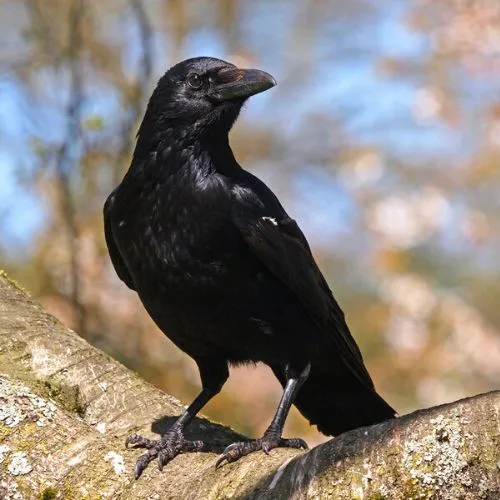
You may notice the ripe berries half eaten or the flowers are plucked out, which is definitely the work of the crows.
These are some of the many birds that are attracted to elderberries during the summer season. A number of them store it for the winter in their nests.
Also, the flowers that grow on the elderberry plants attract a number of insects which in turn catches the attention of the birds. Gardeners who have elderberry plants in their backyard should think of some effective measures to keep these birds out of their backyard.
Are elderberries poisonous for wild animals?
Some gardeners claim that elderberries are hundred percent deer resistant, but that is not always the case, as we have discussed earlier. Some species of elderberries can make deer seriously ill or can even take their life. These alfalfa eaters are not immune to the toxic substances in the plants, which makes them not much favored.
Berries such as Black lace Elderberry, which contains cyanogenic toxin glycoside, do have a very low rate of harm to humans but can have much of an effect on the deer. The fruits of these plants are not ripe, which makes it more unfavorable for the deer to have. If any of the species of elderberries are eaten by the deer when they are raw, it can have a very serious effect on them.
How to keep deer out of garden naturally
Keeping the deer away from your backyard can be a tiresome job. But these steps that are discussed below can give you some basic ideas as to how you can protect your plants from being the food to the deer.
Make use of deer nets
Deer nets are skillfully developed wires that will protect the small plants and young shoots and bushes in your garden. These nets have very small holes, which will provide sufficient space for sunlight and air to pass through and prevent the four-footed animal from eating the plants.
But the deer nets are not solely enough to restrict the deer from entering your garden and will need assistance from other methods too.
Build a fence around your backyard
The most prominent method to keep away the wild animals from your backyard is to build a fence around it. The fences are a permanent solution to your problem with the deer as it closes all the ways for the wild animals to enter your garden and will give a wide berth to the deer.
Plant some deer-resistant plants
There are a number of plants that are completely deer resistant. Some of these are oregano and rosemary. Deer hate plants that smell nice to the human nose. If you plant these plants in your garden, then along with the help of the fences, this will be a perfect security guard for your plants.
Give the deer repellants a try
You can rotationally use some deer repellants. The smell of the repellents, such as Natures maze, will naturally make the surrounding of the garden alien to the deer. They memorize the way to a place through their smell, and using such repellents will definitely demotivate them and will keep the deer miles away from your garden.
You May Also Find Useful: Do Deer Eat Celery? | Do Deer Eat Potato Plants? | Do Deer Eat Oranges?
Frequently Asked Questions (FAQs)
Are hummingbirds elderberry eaters?
Yes, hummingbirds are among those birds who usually feed on nectar and berries. It is very common that these birds will put an eye on your elderberries during the warm season.
How to protect the elderberry plants from the birds?
There are many ways to protect berry plants from birds. You can use a bird net around the plants to keep them safe, which is the easiest and is a permanent solution. You can also spray insecticides on the plants that will keep the insects away from the plants and, in turn, the birds too.
When do elderberry plants bear fruits?
Elderberry fruits ripen during the autumn season, which is between mid-august and September.
Most of the berries turn red or purple when they are ripe.
Conclusion
Every plant is unique. The decision to grow them near your house or in your backyard will contribute not only to your well-being but also to the well-being of the planet. But it is not as simple as it seems. You need to keep a check on several aspects, of which protecting them is the foremost. Animals tend to wander near your gardens when there is a crisis in the food supply. In such cases, you can keep some extra food outside your garden to feed them and keep your plants safe too!

